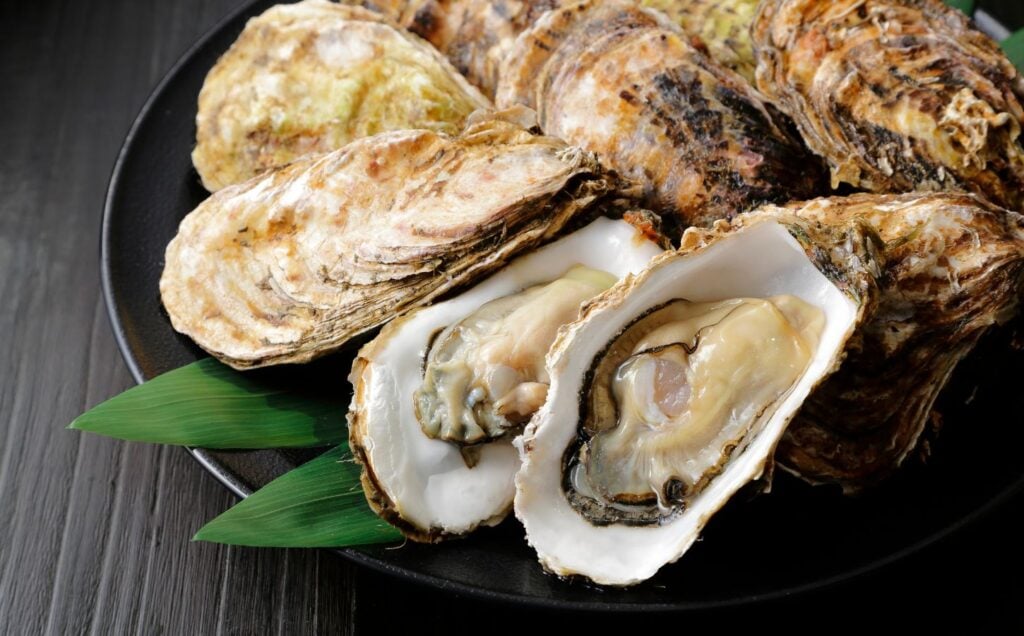Whether oysters are sentient animals who feel pain is often subject to debate. At first glance, the answer to whether or not they are vegan would seem to be a simple “no.” However, a number of people in the plant-based community believe that they’re acceptable to eat.
One of these is Peter Singer, the author of the 1975 book Animal Liberation. The book, which is often credited as being key in kick-starting the animal rights movement, is being reissued next month. Singer was recently quoted in an interview as saying: “I think it’s unlikely that oysters feel pain. And even if you think they do, then because of the way they’re grown and harvested it might well be that you’re not responsible for more pain than if you eat plants. Because after all plants also have to be grown and often rodents are killed while plowing or harvesting.”
He added that we can’t be “100 percent sure,” but expressed his belief that eating oysters is “as pure as most foods we can get.”
Singer isn’t alone. His view is shared by many others who consider themselves vegan. Another is chef Alexis Gauthier, who has led kitchens at Michelin-starred restaurants, and went vegan on ethical grounds in 2016. “For me, a vegan diet is fundamentally about compassion,” he previously said, before adding that oysters are non-sentient beings and therefore acceptable to eat.
The question of oyster sentience is often put forward to vegans. Here’s everything you need to know about how to respond.
What are oysters?
“Oyster” is the name given to a number of invertebrate bivalve molluscs. They naturally live in the ocean, but are often raised on farms. Oyster farms are usually located in natural or human-made bodies of water. Oyster farming is considered by many to be sustainable, due largely to the fact that the animals filter the water while feeding. They are also capable of extracting carbon from the atmosphere and storing it in their shells.
Oysters are eaten all over the world. They are a hugely popular “seafood,” and can be eaten both raw and cooked. In 2022, the oyster market reached 7.11 million tons worldwide. They are often considered an aphrodisiac, and are commonly served still in their shell.
China is the world’s largest producer of oysters, and they are also popular in the US, France, Canada, Japan, Aotearoa (New Zealand), and the UK.
Are oysters vegan?
In short, the answer is no. Oysters are animals, and eating them is therefore not considered compatible with a vegan lifestyle. Yet many vegans are asked whether they consume them. At first glance this question can seem strange; oysters have long been part of the animal kingdom, why would anyone think they’re a reasonable part of a plant-based diet?
Part of this comes down to their experiences with pain and sentience.
Do oysters feel pain?
Some people claim that oysters are vegan-friendly due to a belief that they are not sentient creatures capable of feeling pain.
Pain is a subjective experience and impossible to measure in any animal. However, most people will class an animal as capable of pain if they have a central nervous system and brain. Oysters have neither of these, which has led many to assume that they are not capable of such emotions. While it may be less likely they feel pain compared to animals like dogs, cats, fish, and insects, there is no scientific evidence that proves it.
Oysters do have a basic nervous system and a small heart and internal organs. Some scientists believe that, while they may not experience pain in the same way as us, they could still respond to negative stimuli. This may indicate that they are capable of something at least resembling pain. Other scientists state, however, that such responses are reflex, rather than pain-driven.
Should vegans eat oysters?
We don’t know if oysters feel pain, but that doesn’t mean vegans should eat them. Humans have, over the years, wrongly believed that many animals aren’t sentient, only to later discover through scientific developments that they are.
Just because a being has a different physiological make-up to us, that doesn’t necessarily mean they are incapable of feelings that are similar or equivalent to those experienced by humankind.
Oysters are not an essential component of our diets. But luckily for “seafood” fans, there are plant-based alternatives.
Vegan alternatives to oysters
The vegan “seafood” market is growing, and it’s likely that we’ll see a number of plant-based “oysters” popping up in restaurants and supermarkets in the coming years.
One company, named Pearlita Foods, last year created a prototype of a cell-based oyster, which came in a biodegradable shell.
Vegan oyster sauce
One ingredient that many vegans may miss is oyster sauce, which is hugely popular in a number of Asian cuisines. The savory condiment is created by simmering oysters in water, and it’s often used in stir fries.
Thankfully, there are many vegan alternatives you can use. Cupboard-friendly options are soy sauce, hoisin sauce, mushroom sauce, teriyaki sauce, and tamari sauce. Some retailers also stock vegan oyster flavor sauces, which contain only plant-based ingredients.





